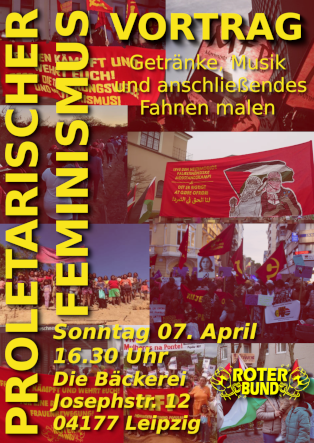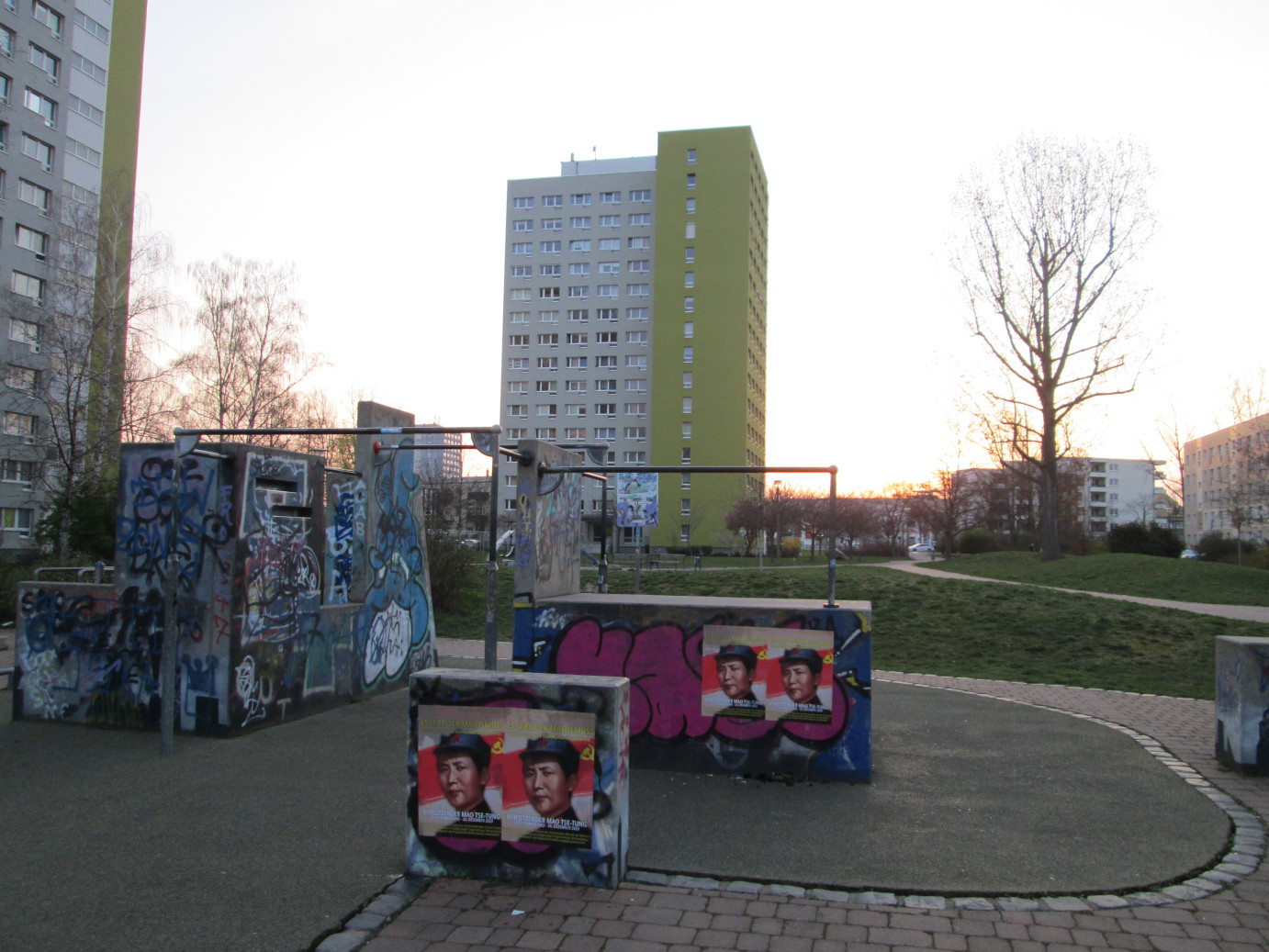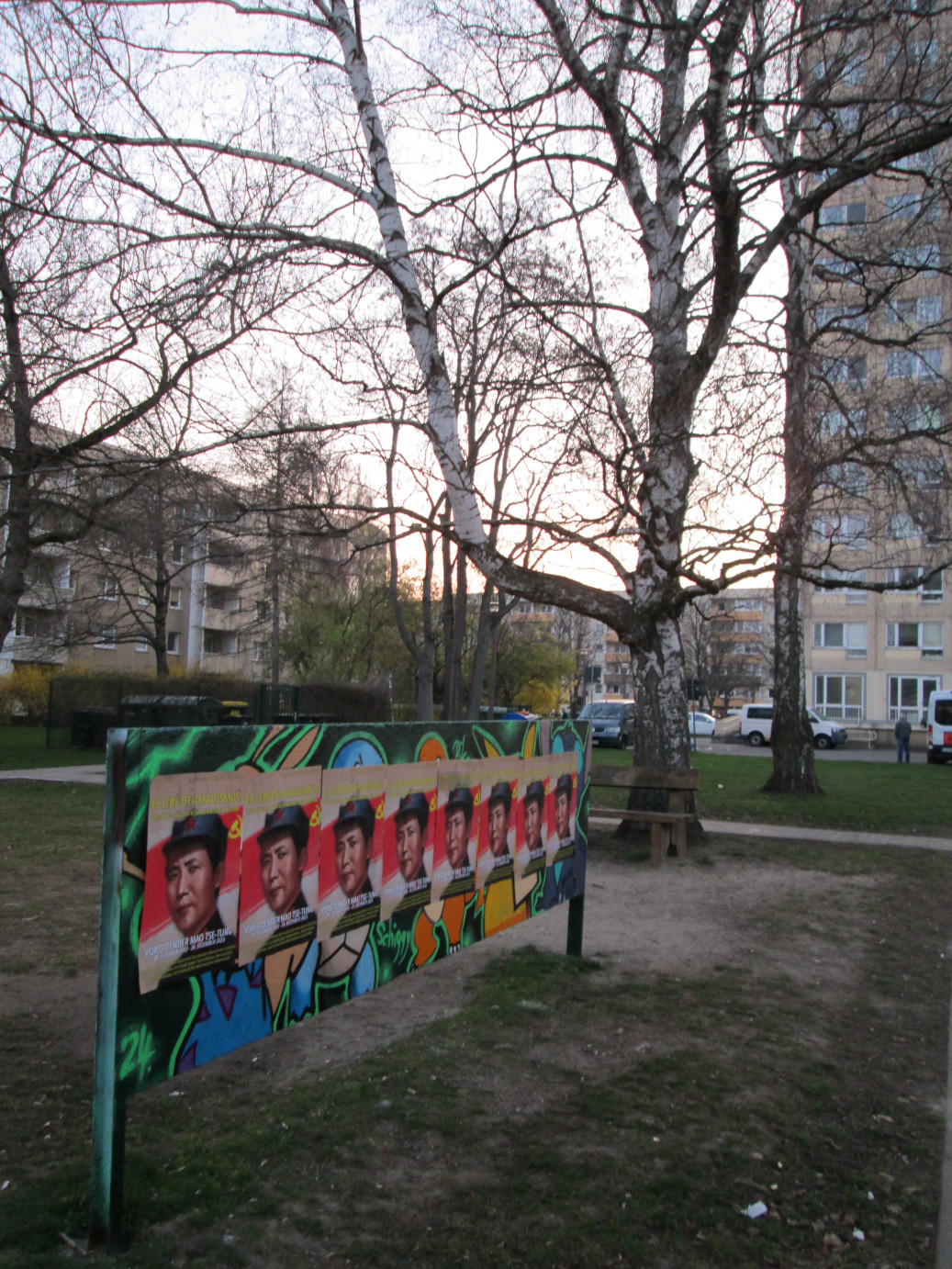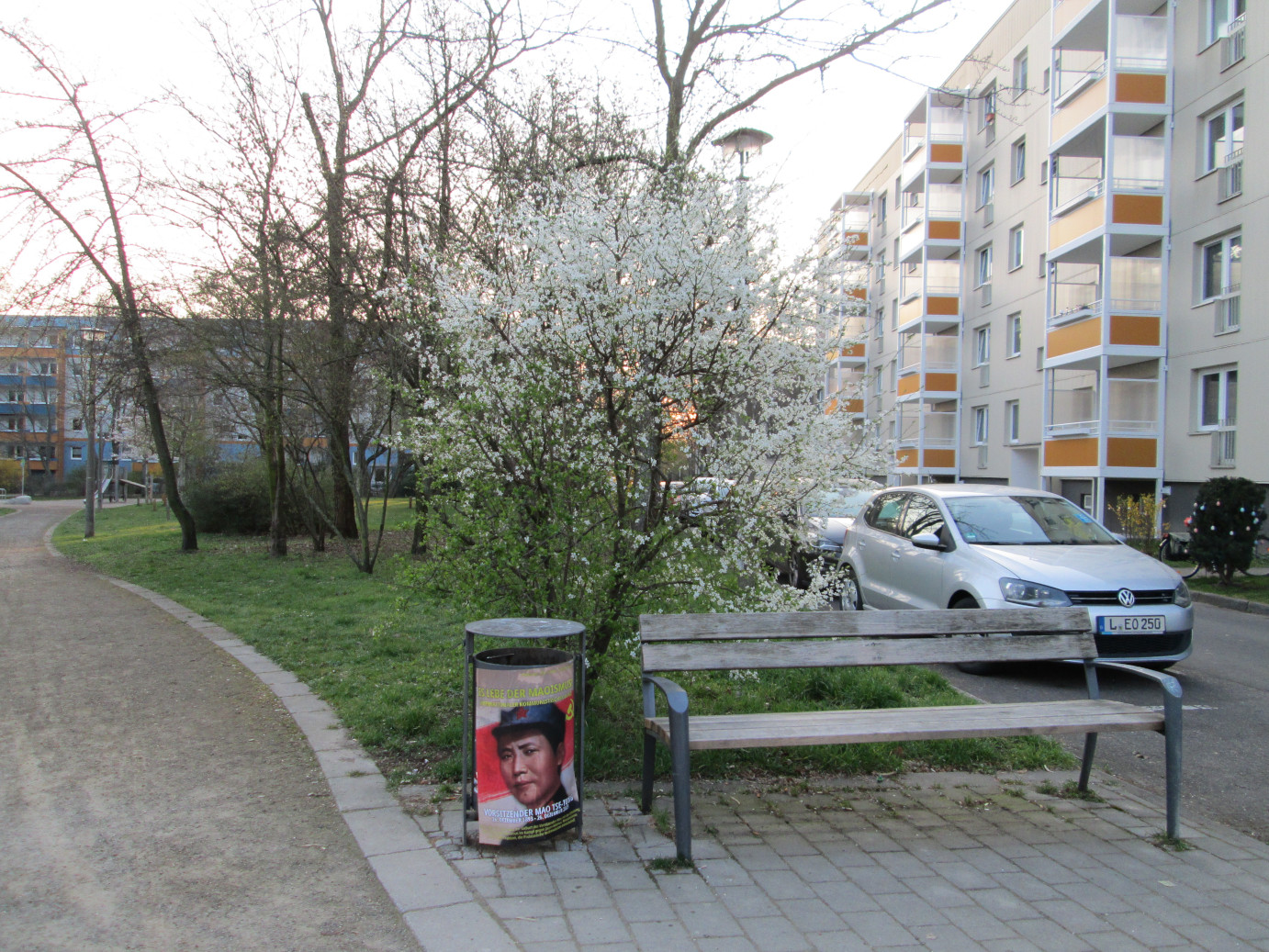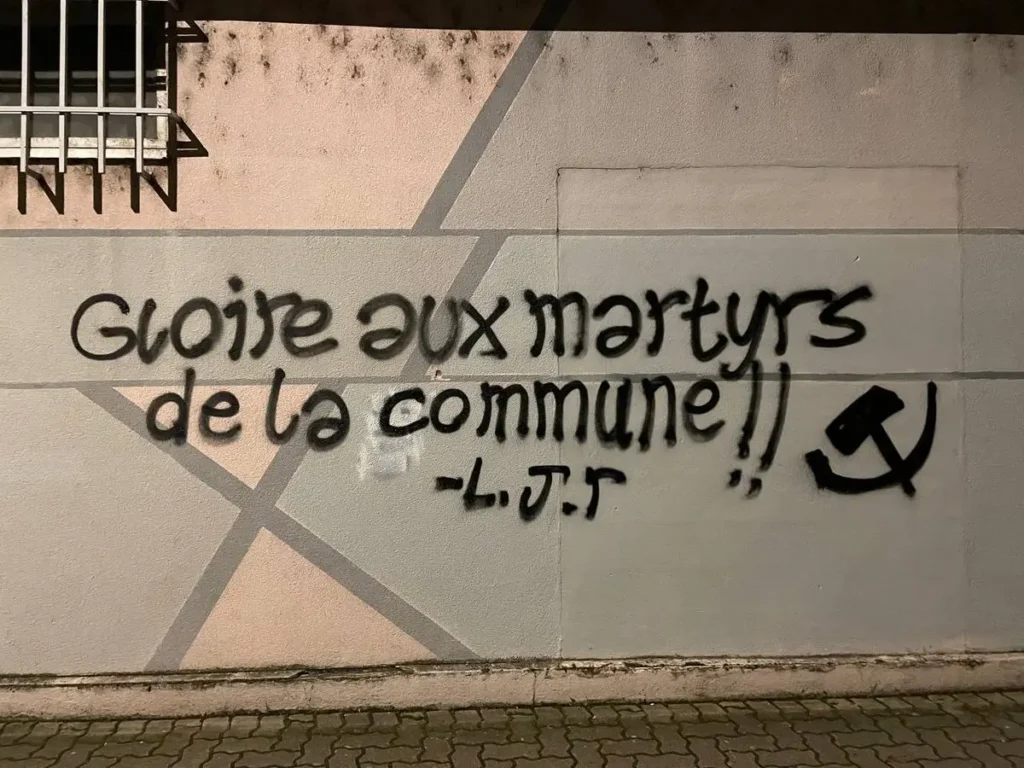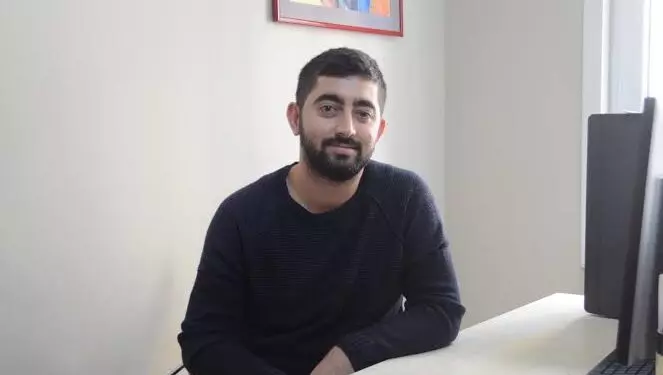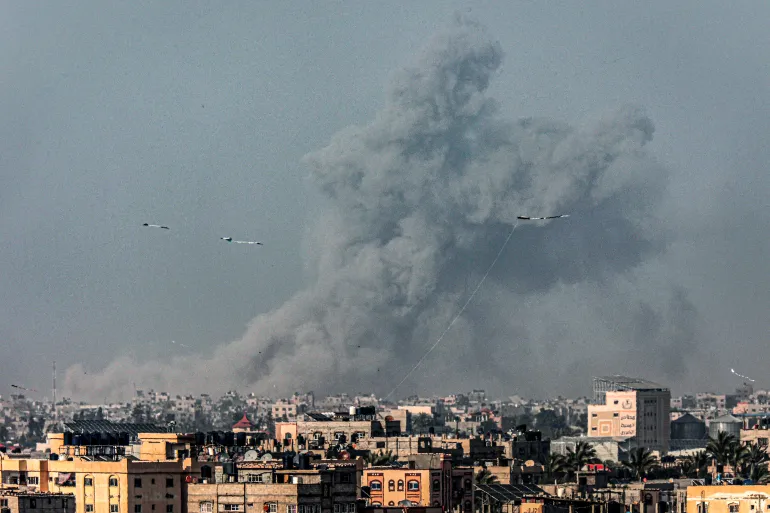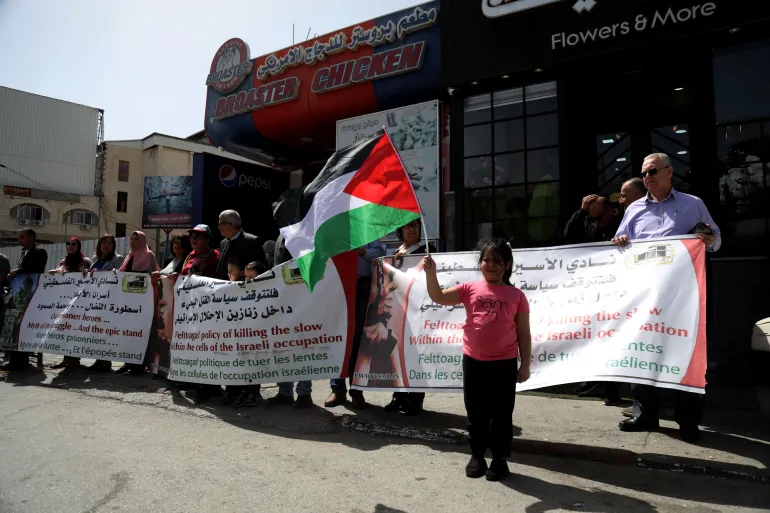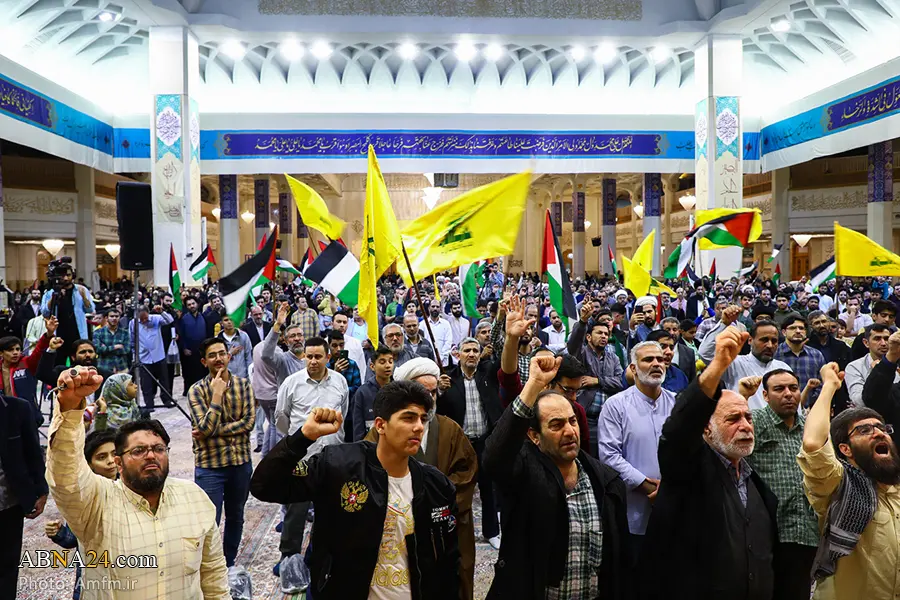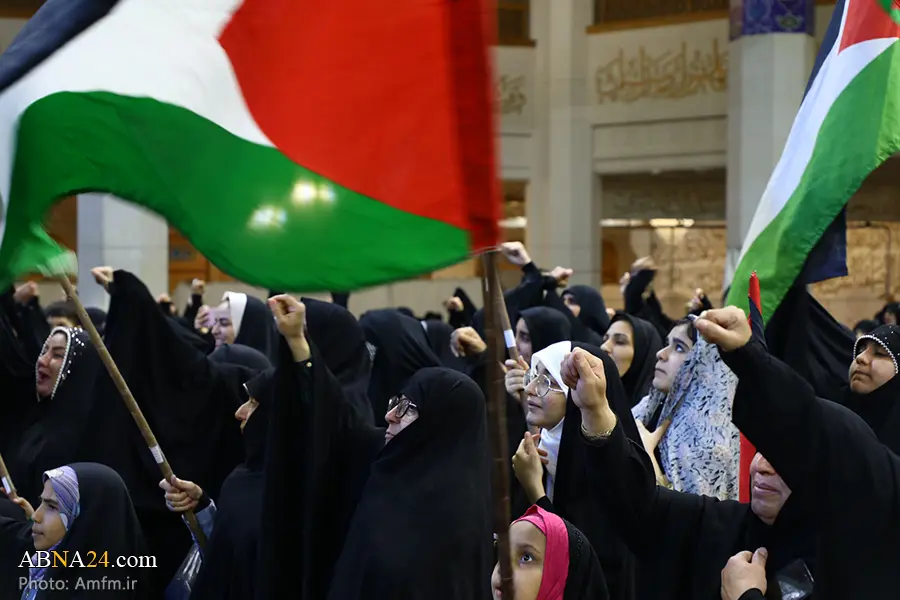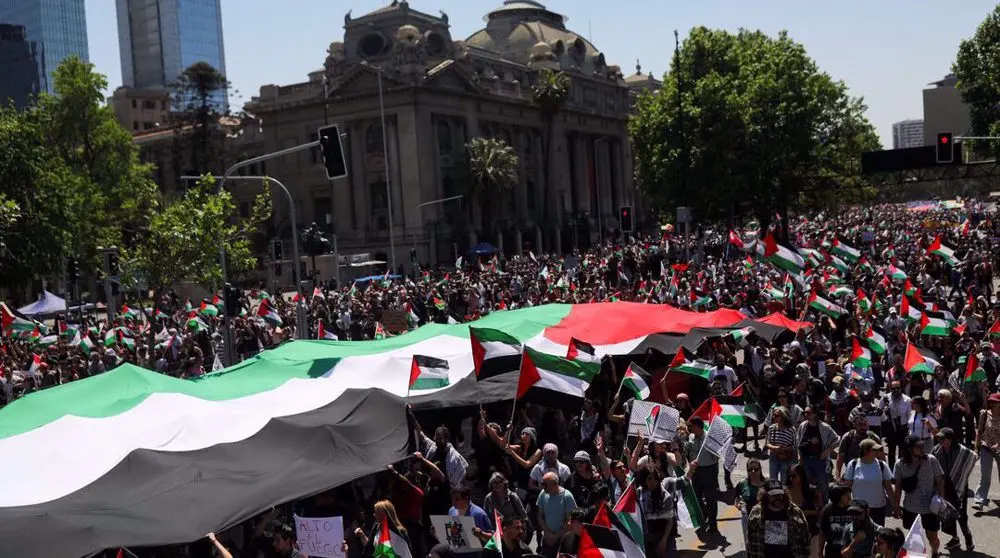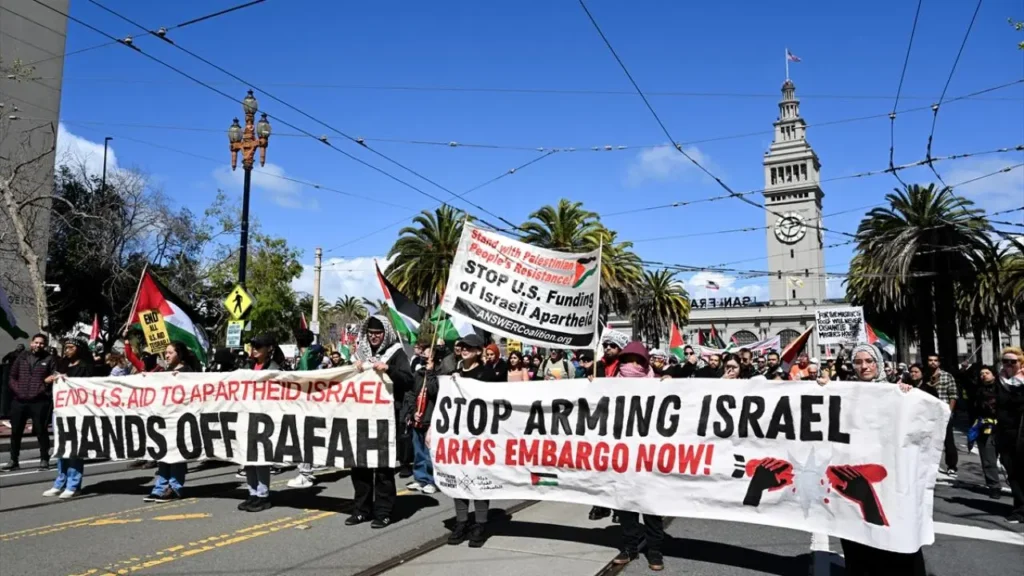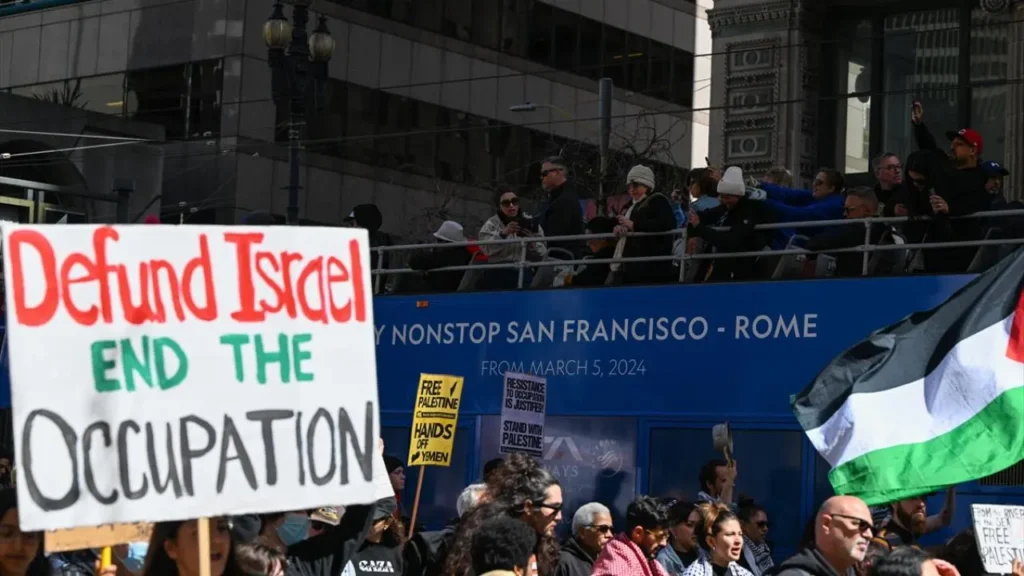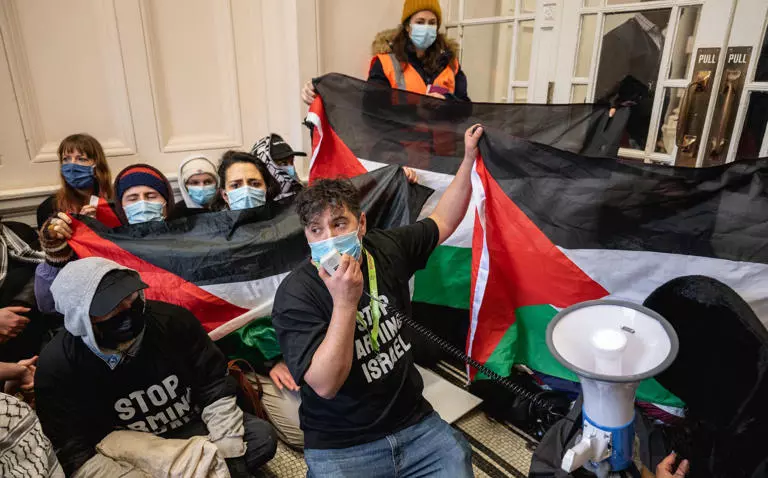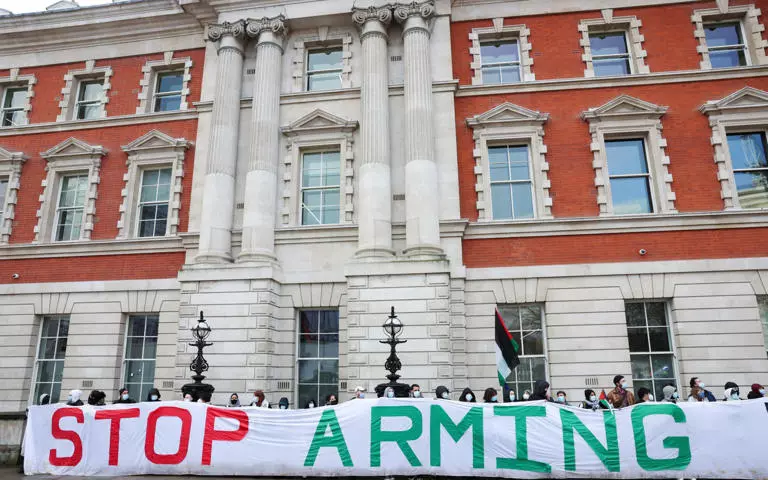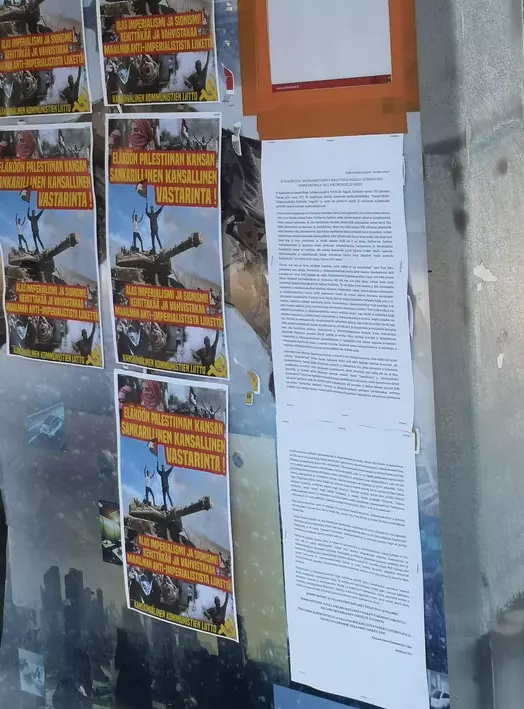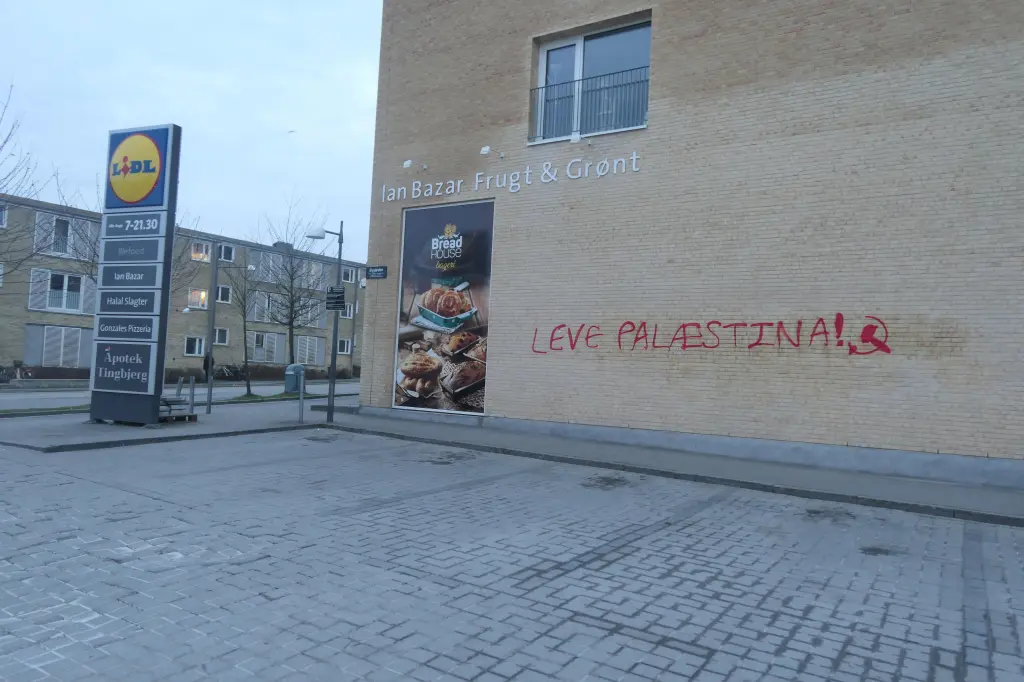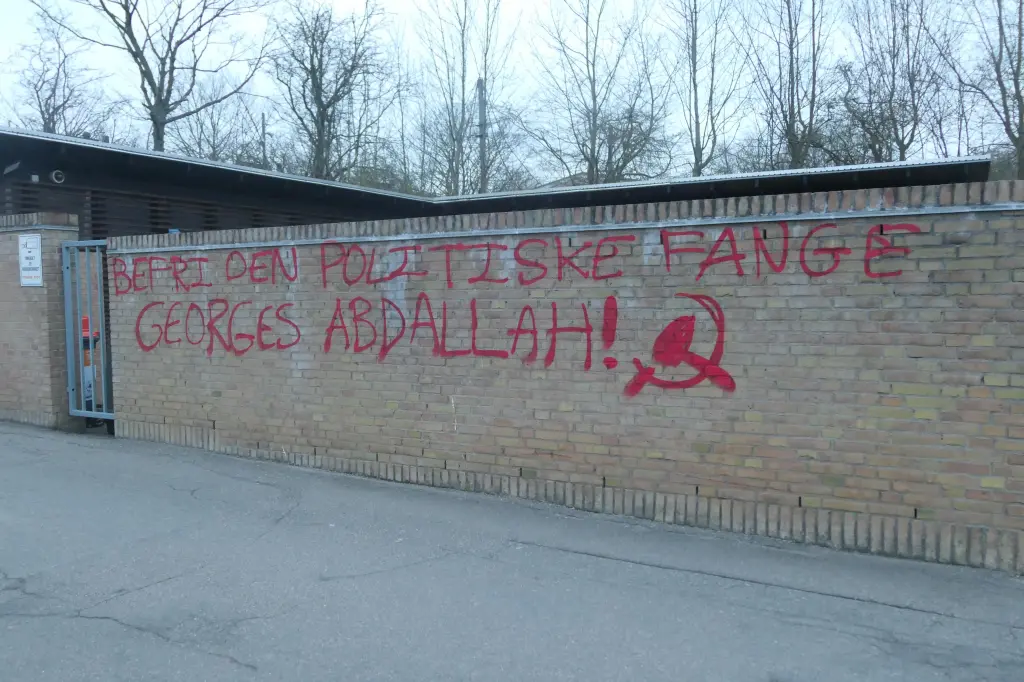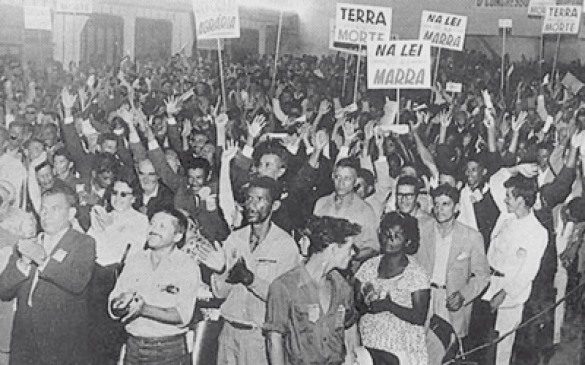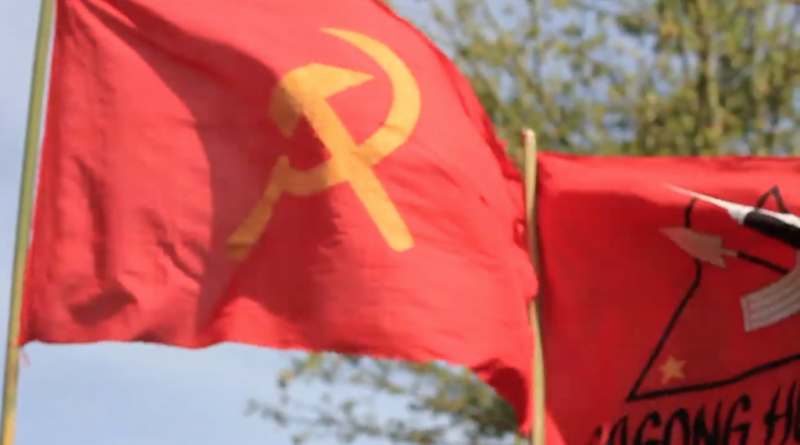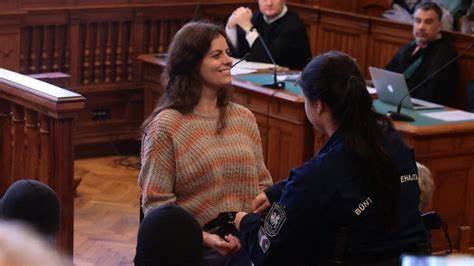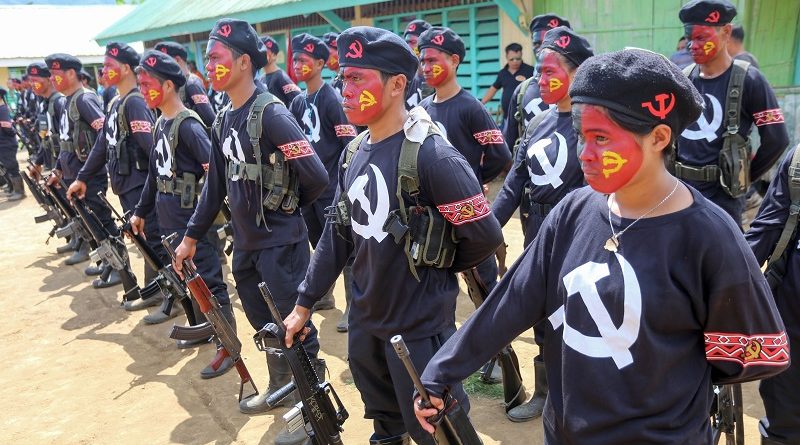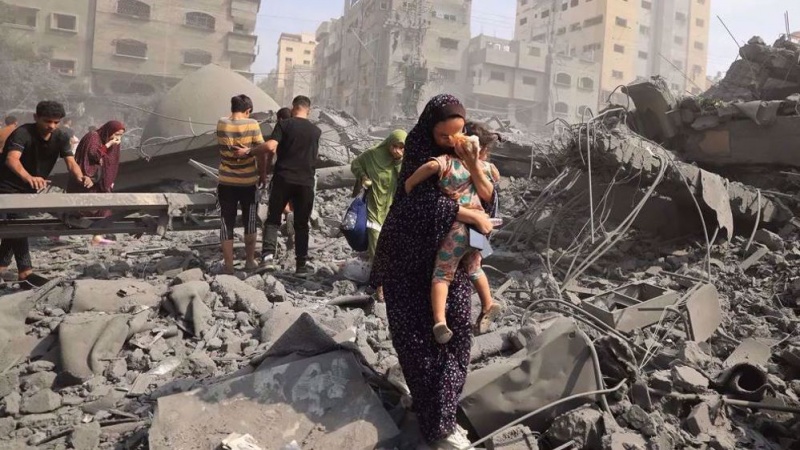PDF Content:
PDF Source:
1 Tactical Offensives | page 4 Marcos Jr. and Duterte stumble further towards international isolation | Page 10Creating freedom and writing the future for our children | Page 12 More indide
2 Victory is the only outcome of the epic people’s war!Editorial March 29, 2024 is the 55th anniversary of the New People’s Army. For the past 55 years our Red fighters have fought the people's enemy with courage and honor. They are the beloved warriors of the masses. We salute their valor, render the highest honor and tribute to the revolu�onary martyrs and heroes of the New People’s Army, and offer our deepest gra�tude for the sacrifices they have given to triumph against the enemy. The enemy always aims to destroy the revolu�onary movement and halt the surge of people’s struggle. But no coercive instrument of the state, no ma�er how brutal and fascis�c, can stop the people from figh�ng for a new social system. It is the brutal violence and intolerable burden of exploita�on and oppression by the comprador big bourgeoisie, landlords and monopoly capitalists that drive the masses to persist in the struggle. The greed of foreign and domes�c capitalists dehumanizes the workers, peasants and all toiling masses. The violence of exploita�on and oppression against the masses that persists day a�er day, and the criminal disregard for their abject poverty legi�mize the justness of the people’s war and thus must be supported. The Filipino people commit themselves to armed revolu�on not because they glorify wars. They commit to it because they understand that it is only through armed struggle that their aspira�ons for a just, developed, and progressive society will be fulfilled. For more than five decades, the revolu�onaries and the masses have withstood the onslaughts of the enemy. The hardships and sacrifices of the Filipino people and their army have built a strong founda�on for the advance of the na�onal democra�c revolu�on and the crea�on of the People’s Democra�c Government. Imperialism and the local reac�onaries may seem like a formidable foe. But we have the people on the side of revolu�on and once aroused, organized, and mobilized in their millions, they become an invincible force. It is the responsibility of the revolu�onary movement to con�nue arousing, organizing and mobilizing the people wherever they are. Despite the huge number of the enemy forces, weaponry and heavy support from US imperialism, the revolu�onary movement has been able to counter and defeat every strategic counterrevolu�onary plan implemented by the regimes from Marcos Sr to Duterte. The current Marcos Jr. regime's “oplans” will suffer the same fate. The par�cipa�on and support of the masses for the revolu�on are unwavering. Addi�onally, the revolu�onary forces abroad, including Filipino migrants,
3are greatly inspired by the sacrifices of the New People’s Army. Many have expressed their desire to fight alongside the people’s warriors. Indubitably, the boundless courage and daringness of the masses and revolu�onary forces in the face of sharpening class contradic�ons shall be kept in the treasure chest of stories that inspire the revolu�onary movement’s con�nued advance. Rec�fica�on and Resurgence Building on its achievements and founded on the strong support of the figh�ng masses, the Party has embarked on a rec�fica�on movement to address its weaknesses and errors and advance the people’s war to even greater heights. This rec�fica�on movement strengthens and unites the Party and the people along the correct revolu�onary line and steels the figh�ng will and capabili�es of the masses and the people’s army to face the enemy. History has shown that revolu�on advances when rec�fica�on is undertaken to correct errors and implement tasks to further advance the people’s war, and to prevent devia�ons from the principles of Marxism-Leninism-Maoism that guide the people’s democra�c revolu�on. Resurgence in all aspects of work for the revolu�on results from the rec�fica�on by the revolu�onary movement. Analyzing and summing-up our work, correc�ng errors and pu�ng stress on what must immediately be done will energize comrades to fulfill their responsibili�es and tasks. People’s war is a necessary undertaking in the building of the People’s Democra�c Government that responds to the needs of the masses. The old social order must be destroyed in order to build upon its rubble and ashes a just, equitable, and pro-people system of governance. Ours is a just war and the people’s war of the Filipino people is bound for victory!IN THIS ISSUE Editorial: Victory is the only outcome of the epic people’s war! |Page 2 Tactical Offensives | Page 4 A woman’s place is in the struggle | Page 6 New attempt at “Cha-Cha” exposes GRP's rotten political and economic system | Page 7 People’s War Not Constitutional Change is the True Answer to the Filipino People’s Problems | Page 9 Marcos Jr. and Duterte stumble further towards international isolation | Page 10 Creating freedom and writing the future for our children | Page 12 Ka Joma Lives! Study Movement: Immortalizing Ka Joma’s Legacy | Page 15 ‘Women who struggle are women who can never be defeated’: Remembering the life of Kamil “Ka Alex” Manangan | Page 16 Hardtalk: 'We are not for a ‘restart’ but for a resumption of peace negotiations’ | Page 18 Statement of Makabayang Kilusan ng Bagong Kababaihan (MAKIBAKA) on International Working Women’s Day, March 8, 2024 | Page 19 Ka Joma Lives! Study Movement: Immortalizing Ka Joma’s Legacy | Page 21 NPA units welcome the year with series of tactical offensives, ambush operations against AFP in Rizal, Masbate and Negros | Page 23 Poem: The Guerilla Is Like a Poet | Page 24 The NDFP is the revolutionary united front organization of the Filipino people fighting for national freedom and for the democratic rights of the people. Established on April 24, 1973, the NDFP seeks to develop and coordinate all progressive classes, sectors and forces in the Filipino people’s struggle to end the rule of US imperialism and its local allies, and attain national and social liberation. EDITORIAL BOARD Ma. Lourdes Barros Hugo Francisco Jose Emilio Jacinto III Ricardo Lozano Raya Andres – Montañosa Ana Rosario LIBERATION INTERNATIONAL is a publication of the NDFP International Office Amsterdamsestraatweg 50, 3513 AG, Utrecht, The Netherlands Email us at contact@ndfp.org
4“[T]he NPA makes them suffer casual�es and defeats through ambushes, raids, arrest opera�ons, demoli�on work and other forms of sabotage. The enemy is like a big monster that cannot protect its body parts and is bleeding to death from many wounds.” — Jose Maria Sison, 2021 “Poli�cal power grows out of the barrel of a gun.” — Mao Tse Tung, 1927 In 2023, the New People’s Army (NPA) launched numerous victorious tac�cal offensives causing the fascist enemy to bleed with a thousand cuts. Recently, the Narciso Antazo Aramil Command of NPA - Rizal successfully ambushed the opera�ng troops of the 80th IBPA in Lukutang Malaki, Barangay San Isidro, Rodriguez, Rizal. More tac�cal offensives are certainly in the offing. How does the NPA, thus, prepare for a tac�cal offensive? Libera�on Interna�onal, on the occasion of the New People’s Army’s 55th anniversary, interviewed a Red fighter to delve into the process of moun�ng an offensive. Pre-tac�cal offensive Before any tac�cal offensive (TO) is launched, it is me�culously planned wherein several crucial elements are primarily taken into account, such as poli�cal gain, the masses’ gain, social inves�ga�on and class analysis and the masses’ readiness. Based on these considera�ons, the responsible command determines which kind of offensive befits the masses’ and the NPA’s capaci�es, exis�ng poli�cal situa�on and other security aspects. A tac�cal offensive takes months to prepare, depending on the size of an opera�on. For instance, big, annihila�ve offensives entail a longer prepara�on as it involves orienta�on and consolida�on of forces, stockpiling, and iden�fying areas to retreat, to name a few. When it comes to small ac�ons, a ‘window of opportunity’, for example, the enemy passes by an area at a given �me, prompts swi� prepara�ons. It also depends on the masses. Their determina�on and asser�on can contribute to a swi�er prepara�on. More importantly, without the masses’ unwavering support, there would never be a successful tac�cal offensive. They play a pivotal role in the en�re process—from preparing the place, determining the places to retreat, ensuring sufficient food and supply, inves�ga�ng the security situa�on, and monitoring the movement of the enemy, to knowing when to strike. In carrying out all these tasks, the people’s mili�a units, who act as local NPA units in the barrio, along with the self-defense units of revolu�onary mass organiza�ons are also mobilized. Actual tac�cal offensive In all tac�cal offensives, every Red fighter deals with a lot of tension and a lot of things play in their minds which is but natural. The NPA though knows how to handle the situa�on well. They li� each other’s morale, and keep themselves focused on their objec�ve. During the actual tac�cal offensive, a great deal of �me is spent lying in wait, which can last up to three days or even longer. Once the opera�on is mounted, two things can happen— either it is successful or not. OffensivesTacticalOffensives By Raya Andres - Montañosa
Primarily, a successful TO is measured by the extent of damage inflicted on the enemy or the enemy’s reduced figh�ng capability. The impact on the enemy is, thus, more important than the sheer number of enemy casual�es. T o illustrate, it is successful if a sizable number of arms are seized from the enemy or if they lose their morale, even if it is a minor tac�cal offensive, yielding minimal or zero enemy casual�es. Contrarily, the effect is the opposite if it is not successful. If this happens (and in any situa�on), the most important thing to do is to assess the results to form an objec�ve analysis of the circumstances and to draw lessons. Also, it is important to make the masses understand the lessons from their own experiences, regardless of the results of a tac�cal offensive. Abor�ng or stopping a tac�cal offensive can also happen. One of the main reasons is the extent of harm to the masses and the NPA. This usually happens when the social inves�ga�on is incomplete, or the analysis of the data gathered is wrong. Hence, the importance of conduc�ng a thorough study and analysis to collect informa�on on the enemy’s movements, their stop points, the right �me to strike them and their vulnerabili�es, among others. Post-tac�cal offensive When a tac�cal offensive is successful, the masses certainly celebrate it. O�en�mes, even the masses who live far from the revolu�onary mass base are delighted upon hearing such successes. Resounding and victorious tac�cal offensives have beneficial effects both on the organized and non-organized masses. Whether an NPA opera�on is successful or not, enemy retalia�on is always expected. If they can no longer pursue the retrea�ng NPA, they are likely to retaliate against the masses. Even in the preparatory stage, the NPA and the masses prepare for retalia�on by ensuring that the masses are ready to face the enemy’s threats, in�mida�on, and harassment. In the areas where there are organs of poli�cal power, revolu�onary mass organiza�ons prepare for these retaliatory ac�ons through role-playing. Under any circumstances, the masses must realize that safeguarding each other and refusing any a�empt to separate them from their community is vital to protec�ng every one of them. As for the NPA, the most important thing to do during the retreat is to get the masses’ intelligence reports on enemy movements. It is paramount to know, for instance, the enemy’s entry point. If the enemy enters the area, the masses communicate this to the NPA immediately. Some�mes, when the NPA retreats a�er a bigger offensive, there is a team that stays behind to delay or deliver another heavy blow to the enemy. The enemy, who usually retaliates to exact revenge, is most vulnerable during this �me. The masses are again ac�vely involved in this process. A�er a tac�cal offensive, the masses know that the red fighters are �red and hungry. So, they carry their things and keep safe the materials and some arms that are used for the opera�on, as well as prepare and serve them food. Next to giving intelligence reports, they also get rid of any trace of NPA presence during the retreat to prevent the enemy from loca�ng the NPA.
6place is in the Strugglewoman'sA On the occasion of the Interna�onal Working Women’s Day on March 8 and the 55th anniversary of the New People’s Army, Libera�on Interna�onal offers women Red fighters’ insights on building a revolu�onary family in the context of waging an armed revolu�on. Ka M: “As a mother, I try to a�end to my child’s needs while fulfilling my du�es as a Red fighter. At the same �me, we give our full trust to the masses to ensure the safety of our children and that their needs are met.” “As partners, my husband and I are assigned to different guerilla units located far away from each other most of the �me. Thus, we make sure that our requests for visits and reunions are put forward to our respec�ve collec�ves in a �mely manner.” Ka Mabini: “First of all, it must be recognized that society puts a heavy pressure on women, especially mothers, that they must be responsible for their children. Especially among the ranks of Red fighters, we must overcome this preconceived no�on dictated by society that the woman, the mother is confined only to reproduc�ve roles. In this sense, it is important to understand that the woman’s place is in the struggle. For a Red fighter, it is not only your own child’s welfare that counts when it comes to decision-making. As an NPA and Party member, we serve the revolu�on to secure the future not only of our own children but for Philippine society as a whole. Most of the �me, we cannot be with our children, who are usually taken care of by the masses since we are in the midst of a people’s war. Any NPA member has the right to have a family, but it is important to put this in the context of waging a revolu�on. This means that we are in the context of war where the NPA’s duty as well as the welfare of the Party and the en�re revolu�onary movement prevail over and guide the process of raising a revolu�onary family.”
7 By Jose Emilio Jacinto III Another a�empt to change the 1987 GRP cons�tu�on (charter change or cha-cha) is currently underway and has been triggering unrest among the people and within the ro�en ruling system. Cha-cha's have been a�empted by every GRP regime a�er Cory Aquino. The 1987 Cons�tu�on was framed precisely to prevent another Marcos dictatorship (the GRP president is limited to one six-year term). Despite its reac�onary character, the 1987 GRP Cons�tu�on has a clear commitment to patrio�sm and social jus�ce, and it declared the Philippines nuclear-free. These a�empts followed the same script and ended in failure because of the preeminence of the selfish poli�cal objec�ves of those holding power to perpetuate themselves. The move to change the cons�tu�on began a few weeks ago in early January 2024, when a nondescript YouTube video was posted poking fun at the 1986 “EDSA people power revolu�on,” which ousted the fascist dictator Ferdinand Marcos, father of Ferdinand Marcos Jr. A so-called people's ini�a�ve started a week later, collec�ng signatures from the barrios and communi�es to amend certain provisions in the 1987 cons�tu�on, which cha-cha proponents blame as the cause of the country's underdevelopment. A people's ini�a�ve is a scheme that purportedly allows Filipinos to directly propose amendments to the Cons�tu�on, without requiring congressional ac�on. A joint House and Senate resolu�on has been filed to form both chambers into a cons�tuent assembly to amend several ar�cles in the GRP cons�tu�on allowing foreigners full ownership of public u�li�es, educa�onal ins�tu�ons, and adver�sing, among others. However, progressive people's organiza�ons, poli�cal opposi�on, and the church have argued and stood strongly against cha-cha's revival. They assert that far from being the solu�on to the Philippines’ underdevelopment, it is in fact being railroaded to extend the term limit of Ferdinand Marcos Jr. According to Bagong Alyansang Makabayan (Bayan), this revival of cha-cha is no different from the a�empts of previous regimes to use it for their selfish poli�cal ambi�ons. The cha-cha revival is in fact ini�ated by Marcos Jr.'s cousin, Speaker of the House of Representa�ves Mar�n Romualdez, who reportedly spent Php20M per district (about USD350,000) to buy the signatures of the people. The Philippines has around 253 congressional districts. Bayan argues that apart from its ul�mate goal of removing term limits of elected officials, cha-cha will New attempt at “Cha-Cha” exposes GRP's rotten political and economic system
8further open the economy to foreign plunder and exploita�on and the return of permanent US military bases in the Philippines. According to Bayan, this is the reason why the US is also behind the Marcos Jr. government in this ini�a�ve. Blaming the 1987 cons�tu�on for the roots of the country's problems is covering-up the reality of unbridled bureaucra�c corrup�on, feudal and semifeudal exploita�on and imperialist control of the poli�cal and economic system of the country, Bayan emphasizes. The GRP has been consistent in covering up these problems when talking peace with the revolu�onary movement and blaming the armed resistance as the cause of the country's poverty and underdevelopment. It has tried to trip the revolu�onary movement to surrender to the GRP cons�tu�on. In fact, the cha-cha a�empts show that the GRP wants to mu�late its own cons�tu�on. During the 38th anniversary of the EDSA uprising, thousands marched in the Philippines and overseas to protest Marcos Jr.’s scheme to change the charter. They organized a broad network opposed to changing the 1987 Cons�tu�on, which bans poli�cal dynas�es, sets term limits for public officials and provides other guarantees to ensure that the state has “checks and balances,” and prohibits 100% foreign ownership of land, key infrastructure, strategic industries and facili�es in the Philippines. The broad opposi�on network against cha-cha also asserted that instead of focusing on wrecking the cons�tu�on, the GRP should address the people’s demands for wage increases, lower prices, and be�er social services. They also called for resolving the anomalous 2022 elec�ons which installed Marcos Jr. and Duterte. As the Marcos Jr. regime remains determined to push for cha-cha despite the failures of previous a�empts and amidst the Filipino people's resistance, the people's militant democra�c movement and its poli�cal allies must intensify their vigilance in opposing and figh�ng further moves of the regime to perpetuate itself in power and allow further imperialist intrusion into the country's economy and poli�cs. This current push for cha-cha has only exposed the ruling bureaucrat capitalists’ drive to perpetuate themselves in power, further sell the country's sovereignty and integrity to imperialists, and desecrate the people's fundamental rights and freedoms.
9COMPATRIOTS-NDF, the revolu�onary organiza�on of Filipinos overseas and a member of the Na�onal Democra�c Front of the Philippines (NDFP), believes that the Philippine Cons�tu�on is a worthless piece of paper that legi�mizes and jus�fies oppression and exploita�on of the Filipino people in a semicolonial, semifeudal society ruled by US imperialism, bureaucrat capitalism and feudalism. All Cons�tu�ons (1934 and 1943) that had been in effect since the United States’ crea�on of a so-called Philippine Commonwealth, then followed by the Philippine Republic, were imposed on the Filipino people to legi�mize its neocolonial rule. The 1973 Cons�tu�on or Marcos Cons�tu�on, which replaced the pre- WWII cons�tu�ons, made President Ferdinand Marcos Sr. a one-man ruler. The cons�tu�on that Marcos implemented made him a dictator and allowed him to stay in power longer through the declara�on of Mar�al Law. The Filipino people’s an�-dictatorship struggle led to the ouster of Marcos in 1986, paving the way for the Corazon Aquino government and its 1987 Cons�tu�on, which included some favorable provisions such as the ban on nuclear and foreign military bases, limi�ng foreign ownership to 40%, an�-poli�cal dynasty and term limits for elected officials including the president. These provisions had been the subject of many devious a�empts by previous puppet regimes to amend them. Marcos Jr. and his allies in his ruling class fac�on are behind the moves to revise the 1987 Cons�tu�on. He aims to �nker with this piece of paper with changes that will enthrone his family and cronies once more in perpetuity while ensuring the support of US imperialism by allowing the la�er and its allies to plunder our resources and complete the annexa�on of the Philippine archipelago as its military base in the looming inter-imperialist shoo�ng war with China. The oppressed and exploited classes and sectors of the Philippine society have all the reasons to oppose Marcos Jr.’s Charter Change. Compatriots-NDF believes that the people’s opposi�on against Charter Change is growing and will succeed as it is linked and raised to the an�-imperialist, an�-bureaucrat capitalist, and an�-fascist struggle. We call on the Filipino People to expose and oppose the Marcos Jr. Regime as US imperialism’s new tyrant at the helm of the puppet government of the Philippines. Any changes to the current 1987 Cons�tu�on of the Republic of the Philippines only aim to consolidate and perpetuate the power of the ruling classes of bourgeois compradors, big landlords, and the bureaucrat capitalist state, and favor the con�nued plunder and war- mongering agenda of its US imperialist master. No amendment to the current neocolonial Cons�tu�on will provide relief or salva�on to the Filipino masses from poverty, des�tu�on, and oppression. The Filipino people’s na�onal democra�c revolu�on is the only and true solu�on to the fundamental economic, poli�cal, and socio-cultural problems of the Filipino people. Onward with the People’s War! Defeat Imperialism! Advance the People’s Democra�c Revolu�on! People’s War Not Constitutional Change is the True Answer to the Filipino People’s Problems Statement of COMPATRIOTS-NDF (Revolu�onary Organiza�on of Overseas Filipinos and Families)
Marcos Jr. and Duterte stumble further towards international isolation
“seemingly unchecked powers” due to the An�-T error Act, which was passed into law during Duterte’s �me. The UN experts expressed “serious concern about the seemingly broad and unchecked execu�ve powers…par�cularly the discre�on of the An�-T errorism Council to designate individuals and organiza�ons as ‘terrorists’ and the An�-Money Laundering Council to adopt targeted financial sanc�ons therea�er.” The le�er was signed by Fionnuala Ni Aolain, special rapporteur on human rights while countering terrorism; Irene Khan, special rapporteur on the promo�on and protec�on of the right to freedom of opinion and expression; Clement Nyaletsossi Voule, special rapporteur on the rights to freedom of peaceful assembly and of associa�on; Mary Lawlor, special rapporteur on the situa�on of human rights defenders; José Francisco Cali Tzay, special rapporteur on the rights of indigenous peoples; and Nazila Ghanea, special rapporteur on freedom of religion or belief. In July 2023, the Interna�onal Criminal Court (ICC) rejected an a�empt by the Duterte camp to block an inves�ga�on into the thousands killed during Duterte’s so-called ‘war on drugs.’ Following the ICC’s announcement, Marcos Jr. stated that his regime would not cooperate with the ICC inves�ga�ons claiming the interna�onal court has no jurisdic�on in the Philippines. By refusing to cooperate with the ICC, Marcos Jr. lays bare his culpability in shielding the Duterte regime’s reign of state terror that killed 30,000 people and vic�mized the Filipino toiling masses for six long years. It can be recalled that this series of diploma�c incidents hounding the reac�onary regime was preceded by a falling out between the Marcos Jr. and Duterte ruling fac�ons. First triggered by conflict over the bureaucra�c loot in the controversial ‘confiden�al funds’ of the Office of the Vice President (OVP) Sara Duterte (daughter of Rodrigo Duterte), the feud between the two ruling cliques has developed into exple�ve-laden exchanges. Earlier this year, Rodrigo Duterte called out Marcos Jr. for plo�ng to amend the cons�tu�on to li� the president’s term limits. He also accused Marcos Jr. of being a drug addict. In turn, Marcos Jr. responded by saying Duterte was fond of using fentanyl, a powerful opioid drug. The worsening crisis of the semicolonial and semifeudal system in the Philippines has not only sharpened the contradic�ons between the Marcos Jr. and Duterte ruling cliques but has also intensified the people’s resistance against neoliberal offensives and increasing fascism by the current regime. The unprecedented level of crisis and repression unfolding is only bound to worsen Marcos Jr. and Duterte’s isola�on from the Filipino masses and from the interna�onal community.
12 CREATING FREEDOM AND WRITING THE FUTURE FOR OUR CHILDREN An interview with Dahoud Shebab, Spokesperson of the Islamic Jihad in Gaza by the Liberation staff Through the help of friends from the interna�onal media, the Libera�on staff was able to send a set of ques�ons to the Pales�nian resistance movement based in Gaza. The ques�ons focused on the reasons why the October 7 military ac�on against Israeli forces was launched, the unity of various groups and forces in Pales�ne, the vision of a free Pales�ne, and the lessons the world could learn from the Pales�nians as they wage their war of libera�on and self- determina�on. The Islamic Jihad is among the various groups within the Pales�nian Forces Alliance, which includes Hamas, Popular Front for the Libera�on of Pales�ne, Popular Struggle Front, Pales�nian Libera�on Front, Vanguard for the Popular Libera�on War-Ligh�ng Forces, and the Fatah Al-In�fada Movement.
13Below is the transcript and transla�on of the video interview with Dahoud Shebab. Minor copy edi�ng was done for this print version. Libera�on: What was the immediate trigger of the October 7 a�ack against the Israeli government? Is there a strategic goal behind this? Dahoud Shebab (DS): October 7 was an expression of the angry Pales�nian rejec�on of all forms of repression and terrorism by Israel over many years against the Pales�nian people. October 7 is not isolated from the rest of the Pales�nian resistance before October 7. We must say that the Pales�nian resistance is about defending its land and defending its people. The resistance is not a group of killers and killing in itself is not the goal. It is not to cause a state of destruc�on and ruins. Rather, it seeks to pressure the occupa�on and use legi�mate means to raise its voice to the world and deliver its message, especially in the light of Israel's complete denial of the rights of the Pales�nian people and the con�nued Israeli a�acks on the Al-Aqsa Mosque, Jerusalem, the West Bank; Israel's con�nuous viola�ons of prisoners' rights; and the con�nuing siege of the Gaza Strip. All these were done by Israel without anyone in the world doing anything to stop them. We have been warning and sending messages to mediators, all par�es, and the United Na�ons that Israeli policies will lead to a major escala�on and an explosion of the situa�on. Before, we witnessed great aggression by Israel. There was killing of Pales�nians at checkpoints in the West Bank in cold blood. Every day there were vic�ms. Did anyone look at those vic�ms? No. No one looked. Came October 7. The aim was to tell Israel and send a message to the whole world that the Pales�nian resistance can cause instability if Israel con�nues its terrorism and aggression; and that it is not only the Pales�nian people who will pay the price for Israel's crimes. Se�lers, the whole region and the whole world may pay the price. All stability will be undermined if Israel con�nues its a�acks. L: Did you an�cipate Israel’s counter-a�ack to be in this magnitude? DS: We are aware that Israel is a brutal, bloody and criminal state, especially this extremist government. We know what they can do. But we did not know that the Israeli government does not care about its prisoners and soldiers in the Gaza Strip. That it can even resort to killing them if only to ensure that this leadership or the Israeli fascist government achieves poli�cal and electoral gains in its internal compe��ons. Israel has even ignored the humanitarian calls made by the Pales�nian resistance since day one of this ba�le for the release of civilian prisoners or civilian detainees for humanitarian reasons. We have said this and called for it. Hamas has also called for it. However, Israel has not paid a�en�on and has con�nued to carry out criminal and bloody bombing and destruc�on that has made vic�ms even of Israeli civilians and foreign na�onali�es. Israel did not care at all for its civilian prisoners, not even the military personnel in the hands of the Pales�nian resistance. Indiscriminate and destruc�ve shelling occurred whether there were Israeli prisoners, foreign na�onals, or others. En�re neighborhoods were exterminated with its residents, civilians, or prisoners held by the Pales�nian resistance. Israel showed no respect even for minimum humanitarian and moral values in the Gaza Strip, especially in the areas of Gaza governorate and in northern Gaza. L: What is the vision of a free Pales�ne? What do you intend to do with Israeli residents who were already born and residing in Israel for so long? DS: To be clear, all this land is for Pales�nians and like any country in the world, when we take full rights and sovereignty over our land, then the government chosen by the Pales�nian people can decide how to deal with foreign expatriates, whether Jews or non-Jews. We have no problem with Jews; we have no problem with anyone. Our problem is with Israeli Zionists who occupied our land. We have posi�ve and good rela�ons
14with many Jews in the world. They never believe in occupa�on. They reject the occupa�on. We have no problem with them. The problem is with Israeli Zionists who came and occupied our land and established a state on our land. Now when we take the right to our land and be liberated, we can choose our own government. This government, like any government in the world, can decide on these na�onals: grant them na�onali�es or not grant them. The problem is that Israel is the occupier. We, therefore, treat the Israeli people as occupying our land. They are all occupiers, but upon our libera�on, we will decide on it. Like any country in the world, you decide on it. This ma�er applies to different countries of the world as well. Also, why is it permissible for a group of countries, such as NATO member states, to establish an alliance with each other and have joint defense agreement but other countries could not? This is a natural right that Pales�ne exercises when it, too, has entered an alliance with other countries such as Iran, Yemen, Iraq, Lebanon, and other countries or other powers, to support the cause of the Pales�nian people. L: An alliance of different resistance movements is now formed, are there other poli�cal forces working at a different direc�on? How was this unity achieved? DS: We welcome any party that wants to support us as Pales�nians and we will not stand against it. But it is important that there is no interference in our policies and in our method of work. That is, no one should intervene. The Pales�nian resistance has independent posi�ons and are not linked to any foreign agendas as claimed by the Israeli occupa�on and other countries that support it. We aim to achieve a more comprehensive Pales�nian unity. Today, we are more confident than ever before in our ability to achieve internal Pales�nian reconcilia�on. The great plight of the Pales�nian people today as a result of the Israeli aggression requires building true unity, especially as some countries are trying to interfere in our affairs and imposing the form and method of managing ourselves. We know how to manage ourselves and know how to decide our des�ny. We will never accept interference from any external party. Our Arab brothers have many things in common. We all are in consensus on what things may be like in the coming days, and we will not allow Israel to impose on us the form, administra�on, and method of governance in the next phase. L: What could possibly threaten this unity? DS: Israel is the constant threat to Pales�nian unity. Israel, which kills the sons of Fatah, the sons of Hamas, the Islamic Jihad, the PFLP (Popular Front for the Libera�on of Pales�ne) and the DFLP (Democra�c Front for the Libera�on of Pales�ne-Marxist Leninist organiza�on) and kills all the Pales�nian people in the West Bank. Israel is the most serious threat to internal Pales�nian unity. It has always been a major obstacle to achieving Pales�nian unity. Today, everyone is fully aware that there is no future for a se�lement with Israel and that Israel is a bloody, criminal, and terrorist en�ty. In the long term, we believe that this convic�on will promote greater efforts to overcome internal poli�cal differences and lead to building a true Pales�nian unity created by the Pales�nians. This is a right exercised by all occupied na�ons and subjected to aggression but won their independence at the end. There is no occupa�on that lasts forever, not in all human history. We seek our freedom. Therefore, our vision is despite all Israeli threats our resistance will be further strengthened. Israel will not be able to end the resistance, because as long as there is an occupa�on, the resistance will remain. This is a natural thing, and we are confident that we are closer to victory.
15L: The struggle of the Pales�nians is now at the center stage of the world, gathering millions of supporters. Would you consider this a poli�cal victory? DS: The whole world today is looking at the Pales�nian people, the injus�ce done to them and the need for the Pales�nian people to exercise their rights. We are commi�ed to use all our rights throughout our land. This is what we hope to achieve. Today, there is a great deal of empathy and support for the Pales�nian people, including Arabs, foreigners and people of all races and ethnici�es. There is great sympathy for the Pales�nian cause. There is great support for the right of the Pales�nian people to resist, regardless of the posi�ons of the colonial countries. We do not expect anything from Britain, for example, or the Bri�sh government. Britain is known to be a colonizing country. France is a colonizing country. The United States of America is the main sponsor of all the chaos that prevails in the world. It created chaos in Iraq, in Afghanistan, in Pakistan and in other countries. The American experiments—even when America wanted to create governments in its own mold—failed miserably and put these countries into misery, and their future became sorry and uncertain. L: Having demonstrated the higher unity and capacity for waging this war of libera�on, what are the prospects now? DS: People always create their freedom with their own hands. Today, the Pales�nian people have decided to create their freedom and write the future of their children by their own hands. We defend the future of our children in future genera�ons. They should live a decent, safe and stable life like other peoples of the world. But to remain under siege and suffer the injus�ce prac�ced against us by Israel, and to remain hostage to the policies of starva�on and killing -- all of this must stop. Yes, today we are making great sacrifices. But these sacrifices will be a light of hope for a real bright future for the next genera�ons. Today, the world faces the test of whether to be loyal and honest with itself, and to take sides with these values and principles, which were the result of a great deal of wars and bloody, deadly and destruc�ve conflicts. L: What is your take on the role of Israel’s allies and supporters? DS: We must see the United States of America for what it really is. It is not a civiliza�on, it has not created civiliza�on, it has not created stability, but instead has created ways for itself to dominate the whole world. Today is the �me for the world to be free from American domina�on, from slavery to the US dollar, and for the world to take sides with jus�ce. There can be no jus�ce in the light of the con�nued occupa�on of the land of Pales�ne, the occupa�on of the Pales�nian people, and the con�nued suffering of the Pales�nian people among the other peoples of the world who are also suffering as a result of American and Western colonial policies. The whole world is a vic�m of the policies of Europe and America's colonial policies. They plundered the world's wealth, destroyed the environment, destroyed the world economy, and dominated poli�cal affairs. Today, there is a true awakening in many countries and peoples in the world, and must be strengthened and must con�nue.
16Kamil “Ka Alex” Manangan was raised in a pe�y- bourgeoise upbringing and a na�ve of Punta, Sta. Ana, Manila. She studied Business Administra�on at the Polytechnic University of the Philippines (PUP) where she ac�vely par�cipated in a young women students’ organiza�on and engaged in poli�cal work among her fellow students. During her organizing work in the urban area, Ka Alex quickly realized the necessity of the na�onal democra�c revolu�on and understood that armed struggle was the only means to fully liberate Philippine society. She was among the many young revolu�onaries who responded to the call of the Third Rec�fica�on Movement for the youth to join the armed revolu�on in the countryside. A�er a�ending the Party’s anniversary celebra�on in Batangas in 2016, she decided to stay in the New People’s Army for six months a�er which she commi�ed to becoming a full-�me Red fighter under the NPA-Batangas Eduardo Dagli Command. Due to her excep�onal skills, Ka Alex quickly rose through the ranks and became a poli�cal guide within her unit. She par�cipated in military opera�ons, including a raid on Henry Sy’s security forces in Pico De Loro resort in Batangas. She disguised herself as an officer from the Department of Environment and Natural Resources (DENR) and served as a lookout. Ka Alex was happy and proud to have been part of this historic puni�ve opera�on against the Sy Family, owners of the Shoemart Malls and chain of department stores and one of the biggest comprador bourgeoisie families, who grabbed thousands of hectares of land from the peasants in Batangas. A�er this breakthrough experience, Ka Alex was assigned to do mass work where she served as a deputy poli�cal instructor for her platoon forma�on in the town of Lian. She led propaganda and mass educa�on work within their area of responsibility. Ka Alex’s city-life upbringing was totally different from the life of a guerrilla fighter in the countryside. Yet, she would o�en tell her comrades how all her physical exhaus�on would suddenly disappear whenever she talked with the masses about their daily lives and hardships. Her determina�on was tested once more in a defensive encounter in Barangay Lumaniag where she and two other Red Fighters, Ka Jessie and Ka Zac, got separated from their unit. She valiantly withdrew her two wounded comrades and ensured their safety. Undeterred by their predicament, she went to nearby houses of the masses to seek help. She did not know the masses in the area, but she used her propaganda skills and experience in mass work to gain their trust. The masses eventually decided to help them by giving medicine, food, lending clothes and providing a phone to contact the others for back up. Ka Alex once again demonstrated her strength when the fascist AFP (Armed Forces of the Philippines) troops were closing in on the house where they were staying. She raised the morale of her wounded comrades by singing “Tigreng Papel” (Paper Tiger) and repeatedly reci�ng the Party’s oath: “I pledge…to safeguard the security of the Party and all my comrades at the cost of my life if necessary…” Even a�er her harrowing experience in the face of the enemy troops, Ka Alex showed no signs of retreat or regret. Her experience in the ba�lefield only further strengthened her determina�on. When Ka Alex became a full-�me Red fighter, she was elected as a member of the Party’s front commi�ee. A�er a few months, she was assigned as a poli�cal guide for her squad and later as deputy poli�cal instructor for her platoon and logis�cs officer for her unit. Throughout her �me in the NPA, she demonstrated excep�onal zeal in poli�cal work both among the people’s army and the masses.‘Women who struggle are women who can never be defeated’ Remembering the life of Kamil “Ka Alex” Manangan by Atan Dominguez
Ka Alex dedicated her talent and abili�es to do painstaking mass work and touched the lives of hundreds of peasant families in Batangas. As an exemplary revolu�onary woman who gave up a comfortable life in the city to be with the masses she vowed to serve, Ka Alex will always be remembered as a hard- working, gentle, and forward-thinking comrade. She will always be remembered for always quo�ng Mao’s words: “The women who struggle are the women who can never be defeated.” Ka Alex lived by these words un�l her very last breath. She was martyred alongside 13 others on November 28, 2017, in an encounter with the mercenary AFP-PNP troops in Nasugbu, Batangas. Although Ka Alex’s �me in the people’s army may have been short, her life carries profound significance for the masses she served. The strength of her commitment and enthusiasm for revolu�onary work is an eternal source of inspira�on for the youth and women revolu�onaries who persevere in advancing the people’s war.
18 Libera�on Interna�onal: The GRP has asserted that any possibility of opening the peace nego�a�ons would be a ‘restart’ of the whole process, including the framework of the nego�a�ons. Will the NDFP Peace Panel table this as a first item (the framework) in ini�al discussions when both panels meet face to face? Julie de Lima : We are not for a ‘restart’ but for a resump�on of peace nego�a�ons. As the first item when we meet with the GRP team in April, it will be the discussion on the framework of the peace nego�a�ons. The Hague Joint Declara�on as the framework for peace nego�a�ons has resulted in several substan�ve agreements, the most important of which are the Joint Agreement on Safety and Immunity Guarantees (JASIG) and the Comprehensive Agreement on the Respect for Human Rights and Interna�onal Humanitarian Law (CARHRIHL). We cannot consign these to the waste basket. Both the GRP and the NDFP have put in a lot of painstaking and deliberate effort in the course of 36 years. Thus, we will insist on discussing the reaffirma�on of all previous signed agreements. LI: When the Duterte regime scu�led the talks in 2017, both panels have been engaged in discussions on the comprehensive agreement on social and economic reforms, considered to be the “heart and soul” of the nego�a�ons. Has this substan�al ma�er ever been men�oned or discussed in framing the statement recognizing the “serious socioeconomic and environmental issues” facing the Philippines? JL: I made a brief presenta�on of the NDFP dra� CASER at a mee�ng with the GRP team in March 2023. We meant this to be among the serious socioeconomic and environmental issues facing our country. But we did not have an in-depth discussion on this with the GRP team. LI: This year will be the 26th year since the Comprehensive Agreement on the Respect for Human Rights and Interna�onal Humanitarian Law (CARHRIHL) was signed by the GRP and the NDFP. In light of recent and con�nuous reports of aerial bombings, killings and massacres against peasants, ac�vists and hors de combat in the Philippine countryside, how can the broad interna�onal solidarity for the Philippine revolu�onary movement hold the GRP accountable for its war crimes? JL: The current Ferdinand Marcos Jr. regime can be held accountable for viola�ons of the CARHRIHL, which the government co-signed with the NDFP. But since these acts cons�tute war crimes, he can also be held to account under the Nuremberg principles. Like Duterte, Marcos Jr. can also be charged under the terms of the Interna�onal Criminal Court. Other avenues including quasi-legal courts of public opinion can also form the basis of future legal ac�ons to hold Marcos Jr. and Duterte for their war crimes. LI: What would the NDFP consider as the most fundamental and substan�al item that needs to be urgently addressed in its dra� of the agreement on social and economic reforms? JL: The most fundamental items that need discussing are agrarian reform, rural development and na�onal industrializa�on. These form the founda�on of the na�onal economy and are the keys to ending poverty and joblessness in the country and ensuring economic growth. LI: GRP factotums have voiced nervous concerns about the CPP's current rec�fica�on movement, even saying that intensifying the people's war runs counter to the “spirit” of the peace nego�a�ons, are there bases for them to have cold feet? Would there be implica�ons for the peace talks, as they imply? JL: The CPP’s current rec�fica�on movement is sure to revitalize and lead to the resurgence of the revolu�on which in turn compels the GRP to address the root causes of armed conflict. Of course, the enemies of the people would be concerned about this. LI: Should the formal peace talks be convened again soon, is the NDFP ready with its peace nego�a�ng panel? JL: The GRP has a long track record of undermining the NDFP Peace Nego�a�ng Panel by targe�ng NDFP consultants and nego�ators in clear viola�on of JASIG. HARDTALK: ‘WE ARE NOT FOR A ‘RESTART’ BUT FOR A RESUMPTION OF PEACE NEGOTIATIONS’ Liberation International interview with Julieta de Lima, Chairperson, NDFP Peace Negotiating Panel
19On the second year of the fascist Marcos Jr. regime, the toiling women con�nue to par�cipate in the armed and unarmed forms of struggle to advance the people’s na�onal democra�c revolu�on! The intense oppression and exploita�on of women in a semicolonial and semifeudal society strengthen and expand the membership of revolu�onary mass organiza�ons such the Makabayang Kilusan ng Bagong Kababaihan (Patrio�c Movement of New Women- MAKIBAKA). Majority of women belong to the poorest strata of society, workers, farmers, indigenous and urban poor. S�ll to recover from the widespread loss of jobs, falling incomes, and inflated prices of goods and u�li�es caused by the pandemic, the Marcos Jr. regime intensifies women’s impoverishment through the con�nued implementa�on of neoliberal agreements and policies. Marcos Jr.’s subservience to his US imperialist master is blatant in the form of US-directed changes to the country’s economic policies. In his current a�empt to amend the 1987 Cons�tu�on via Charter Change, Marcos Jr. further opens the country’s economy to foreign investments in favor of imperialist profiteering.Decades of neoliberal policies implemented in the Philippines have not resulted in any material development for the people and for the economy. Instead, trade deficits persist and the country’s economy is constantly dependent on remi�ances from overseas workers and from constant foreign borrowing. In the past two years alone, the administra�on has incurred Php1.82 trillion debt. In 2023, debt levels have reached a total of Php14.62 trillion. Women and the rest of the masses will surely bear the burden of paying these debts for genera�ons to come. Because the country’s economy is �ed to the global capitalist system, the crisis of imperialism has a direct impact on the jobs and livelihood of the Filipino people. As the crisis intensifies, so does the capitalist exploita�on of the masses. The three biggest apparel manufacturers that comprise 60% of the country’s total garment exports implemented mass layoffs between 2019-2024 wherein an es�mated 80,000 women workers lost their jobs. This was a�er the capitalists issued a pull-out order from the Philippines and transfer produc�on to other countries such as Vietnam and Cambodia where labor is much cheaper. The severe exploita�on of the working-class Filipina con�nues due to contractualiza�on, various forms of Statement of Makabayang Kilusan ng Bagong Kababaihan (MAKIBAKA) on International Working Women’s Day, March 8, 2024Nevertheless, I expect that the Nego�a�ng Panel would be completed as soon as the formal peace nego�a�ons start. LI: How do you foresee the conduct of the peace nego�a�ons in an�cipa�on that most GRP panel representa�ves would be coming mostly from the Armed Forces of the Philippines? JL: We just have to wait and see how they conduct themselves in the peace nego�a�ons. General Ramos, a military man, when he became president enabled the GRP Nego�a�ng Panel to make progress in the peace nego�a�ons. As a ma�er of fact, the most substan�ve agreements were made during his term. Just as it was in Ramos’ �me when many substan�ve agreements were made, it was also the military that scu�led the talks at the �me of Cory, Gloria, Noynoy and Digong. Therefore, it is the seriousness and readiness to engage that the GRP and its principal approach to the peace talks that ma�ers more than the composi�on of the panel. LI: Should the previous agreements already made in the past rounds of peace talks be ‘negated’ , would there s�ll be basis for the NDFP to con�nue engaging in the nego�a�ons? JL: It is the responsibility of both par�es to recognize the agreements made during the course of the peace nego�a�ons since Cory Aquino’s �me because these agreements were signed by legi�mate representa�ves of both par�es. Regardless of who is appointed to each nego�a�ng panel at whichever point in �me, the effec�vity of such agreements must be recognized in order for the peace nego�a�ons to proceed consistent with the framework provided for by the Hague Joint Declara�on. Should the GRP disregard these agreements, then there would be no point for the NDFP to pursue the peace nego�a�ons.
20labor flexibiliza�on, low wages, dangerous working condi�ons, discrimina�on, and violence. The increasing number of unemployed workers contributes to the crea�on of a large reserve army of labor that further depresses wages and perpetuates contractualiza�on. The current minimum wage remains grossly insufficient and unlivable especially in the provinces. Minimum wage in the Na�onal Capital Region (NCR) is only Php610 (approximately 10USD) while it is only Php316 (approximately 6USD) in the Bangsamoro Autonomous Region in Muslim Mindanao (BARMM). In rural areas, women remain among the most disadvantaged groups among fisherfolk, farmers and indigenous peoples. For decades, rural women have been suffering from severe and consistent economic losses and hunger due to widespread landlessness and the lack of state support for local agricultural produc�on. The reac�onary state has failed in all of its a�empts to implement agrarian reform. Since the implementa�on of Masagana ‘99 in 1972 by Marcos Sr., the Comprehensive Agrarian Reform Program (CARP) in 1988 by Cory Aquino, and the subsequent CARP Extension with Reforms by Arroyo in 2009, the reac�onary state has only protected the landlords and their haciendas that should have been distributed to the farmers a long �me ago. In 2021, there are s�ll 540,000 hectares of distributable land under CARP that have not yet been distributed. Widespread neoliberal economic reforms are causing widespread joblessness among farmers and farmworkers. Due to the impacts of liberaliza�on, highly subsidized foreign agricultural products are flooding the country resul�ng in losses for small-scale producers. They are instead forced to sell their products at cheaper prices, despite the high market prices of rice and other basic food commodi�es. The emergence of revolu�onary women's organiza�ons in the countryside is caused by the starva�on of farmers, who are the producers of the people's food. In the absence of agricultural support from the state, coupled with state-sponsored violence, the reac�onary government itself is pushing rural women to par�cipate in armed struggle. Because the feudal-patriarchal society �es women to housework as the primary caregiver of the family, women are among the first to be affected by sky-high commodity prices and unlivable wages. Women who demand the right to a living wage and a safe workplace are in�midated, fired, arrested, and raped. In the provinces, workers are no longer allowed to work in nearby factories simply because they are unionized or are members of a worker’s associa�on. In this situa�on, women's par�cipa�on in social and na�onal libera�on to free themselves con�nue. The severe economic and poli�cal crises are pushing them to organize fellow women, par�cipate and lead mass struggles such as in pickets, land occupa�ons and people's strikes, and take the revolu�onary path of armed struggle. T ogether with all who are oppressed and exploited, it is necessary for the Filipina women to destroy imperialism, bureaucra�c capitalism, and feudalism so that they can all be free. Highest tribute to all the revolu�onary women martyrs who sacrificed their lives for the victory of the people's war! Long live MAKIBAKA! Long live the na�onal democra�c revolu�on! Long live the unity of women and people of the world against imperialism! (This is an abridged version of the original MAKIBAKA statement in Filipino translated to English by Ana Rosario.)
21 KA JOMA LIVES! STUDY MOVEMENT: IMMORTALIZING KA JOMA’S LEGACY The passing of beloved comrade, Ka Jose Maria Sison, fondly called Ka Joma, on December 16, 2022, gave birth to a movement that serves to immortalize his legacy and propagate his works and teachings to the Philippines and the world. Launched by the revolu�onary movement in the Philippines and abroad, Ka Joma Lives! is a dynamic and vibrant study movement that conducts campaigns and ac�vi�es that commemorate his life and contribu�ons to the Philippine na�onal democra�c revolu�on and the world proletarian struggle. In 2023, Ka Joma Lives! Study Movement organized three major webinars, namely: “The Specific Characteris�cs of Our People’s War”, “Our Urgent Tasks”, and “Rec�fy Our Errors, Rebuild the Party!”. These events featured his seminal theore�cal wri�ngs that outline the fundamental principles of waging people’s war, carrying out revolu�onary tasks, and revitalizing the party. Next to these webinars, Ka Joma Lives! also launched ten of his books under the Sison Reader Series last year. These books, a compila�on of his wri�ngs on movements, various sectors, imperialism in domes�c and interna�onal se�ngs, interna�onalism, and rights, jus�ce and peace, are published as Book 12: On the Legal Democra�c Mass Movement; Book 13: On the Revolu�onary Movement and Mass Work; Book 14: On the Workers’ Movement; Book 15: On the Peasant Movement and Agrarian Revolu�on; Book 16: On the Youth Movement; Book 17: Women in Revolu�on and Na�onal Minori�es and the Right to Self-Determina�on; Book 18: Imperialism in the Philippines; Book 19: Imperialism in Various Global Regions; Book 20: Proletarian Interna�onalism and Interna�onal Solidarity; and Book 21: People’s Rights, Jus�ce and Peace. Recently, on March 9, Ka Joma Lives! organized a back-to-back launch of Ka Joma’s books, also under the Sison Reader Series. En�tled, Book 22: On Neoliberal Globaliza�on, and Book 23: Intensifying Interimperialist Contradic�ons, these books contain a collec�on of Ka Joma’s wri�ngs on neoliberalism and globaliza�on, and on the possibility of having an interimperialist war, respec�vely. Aside from these ac�vi�es, Ka Joma Lives! leads the commemora�on of Ka Joma’s birth and death anniversaries. By Ricardo Lozano and Raya Andres-Montañosa
22First death anniversary On December 16 last year, on Ka Joma’s first death anniversary, Ka Joma Lives! hosted the gathering of comrades, allies, and friends of the revolu�onary movement in the Philippines at the NDFP Interna�onal Office in Utrecht, the Netherlands to celebrate his colourful and meaningful life. Through various tributes, songs, poetry readings, and cultural performances, he was honoured and remembered along with several other martyred comrades. This event also launched Ka Joma Lives!’ Poem Project. Inspired by Ka Joma’s poem, “Stages of My Life,” where he chronicled his poli�cal trajectory using the season metaphor, the project invites individuals to add a new stanza to the poem or create their version and interpreta�on as a way of con�nuing Ka Joma’s legacy. Likewise, in the Philippines, an event en�tled “Reflec�ons on Pales�ne, the Philippines, and the Struggle for a Just and Las�ng Peace,” was organized. Hundreds of individuals, including veteran and young ac�vists, discussed and reflected on Ka Joma’s life and wri�ngs. They shared their thoughts and personal anecdotes on his works, such as, “Our Urgent Tasks,” “On Revolu�onary Violence,” and “The Filipino People’s Democra�c Revolu�on is Invincible,” as well as on his thema�c wri�ngs, such as on Israel’s aggressions and massacre of the Pales�nian people, and peace talks between the NDFP and the GRP. In the countryside, on the same day, CPP and NPA units also conducted various ac�vi�es to honor Ka Joma, including the renewal of pledges to the Party. Various guerilla fronts across the country reaffirmed their wholehearted service to the Filipino people and their commitment to offer their lives for the victory of the people’s democra�c revolu�on. Ka Joma’s birthday This year, on February 8, Ka Joma Lives! celebrated Ka Joma’s 85th birthday by organizing a webinar on Ka Joma’s work, “Stand for Socialism Against Modern Revisionism, and a cultural event in Utrecht, highligh�ng Ka Joma’s valuable teachings on the importance of being steadfast in holding an an�-revisionist line and being diligent in studying MLM. The cultural celebra�on also highlighted the CPP’s call for rec�fica�on and resurgence, which is an ideological call to (re)study the basic Party and MLM documents to imbibe the proletarian revolu�onary a�tude and style of work fully and firmly, as well as to ac�vely combat liberalism, conserva�sm and dogma�sm among other ideological corrosives that destroy the Party and the revolu�on. His birthday was also celebrated by the revolu�onary movement in the Philippines. In a statement, the CPP paid tribute to the con�nuing relevance of Ka “Joma” and the validity of the struggle for na�onal democracy. Members of Kabataang Makabayan, a clandes�ne revolu�onary youth organiza�on, in Rizal province, conducted an ‘OP-OD” or opera�on paint – opera�on paste ac�vity where they painted a large portrait of Ka Joma near a public market and the revolu�onary slogans, “Viva CPP-NPA-NDF!” and “Join the New People’s Army!” on several public walls. Meanwhile, also in a statement, the NDF in Southern Tagalog, brimming with revolu�onary commitment and op�mism, pledged to con�nue “forward the rec�fica�on movement and advance the people’s democra�c revolu�on un�l victory.”
23Despite repeated promises of the Marcos Jr. regime to “end the armed conflict” in the Philippines, the New People’s Army (NPA) con�nues to advance the people’s war by launching consecu�ve tac�cal offensives, ambush opera�ons and puni�ve ac�ons against elements of the fascist Armed Forces of the Philippines (AFP) and their agents in Rizal, Masbate, and Negros in the first few months of 2024. On January 31, a unit of NPA-Rizal Narciso Antazo Aramil Command successfully launched an ambush opera�on against soldiers of the 80th Infantry Ba�alion (IB) opera�ng in Lukutang Malaki, Barangay San Isidro, Rodriguez, Rizal. Three were confirmed dead among the ranks of the fascist troops. The NPA unit retreated safely and was unharmed. According to reports, the 80th IB’s intense and relentless focused military opera�ons in Rodriguez have been going on for nearly a year. Apart from serving as guards of the Wawa-Tayabasan Dam being built, troops of the 80th IB also protects the interests of the ruling big landlords such as the Aranetas, Villars and Robles, in Lukutang Malaki. The rampant militariza�on brought fear to locals in the area due to mul�ple cases of harassment, surveillance, food blockades, popula�on control, and other human rights viola�ons perpetrated by the 80th IB. On January 13, a unit of the NPA-Masbate Jose Rapsing Command hit the 96th IB troopers opera�ng in Si�o Lantawan, Barangay Gangao, Baleno, Masbate. The said military unit immediately hid their casual�es to cover up their losses. According to Ka Luz del Mar, NPA-Masbate spokesperson, the armed offensive is part of their efforts to seek jus�ce for the vic�ms of military abuses in the area and defend the people against ongoing military opera�ons in the province. Among those referred to by Ka Luz include the 24 vic�ms of poli�cal killings in Masbate under the US-Marcos Jr. regime. Residents are also indignant at the persistent encampment of “counterinsurgency” units of the AFP and the Philippine Na�onal Police (PNP) in schools in the province – an outright viola�on of interna�onal rules of war. According to reports, pros�tu�on also became rampant in the areas where military camps were being built. Meanwhile, NPA-Northern Negros Roselyn Jean Pelle Command launched consecu�ve puni�ve ac�ons against perpetrators of the Sagay 9 Massacre and other enemies of the people in separate opera�ons last January 2 and February 13. A .22 rifle and 44 rounds of ammuni�on, a .357 pistol plus bullets, two smartphones and various IDs were recovered by guerilla fighters a�er the ac�on. On January 9, 2024, the NPA-Negros Oriental Leondardo Panaligan Command similarly mounted a puni�ve ac�on against a notorious intelligence asset of the local police in Sityo Mainit, Barangay Bulado, Guihulngan City, Negros Oriental. NPA units welcome the year with series of tactical offensives, ambush operations against AFP in Rizal, Masbate and Negros By Hugo Francisco
24www.ndfp.info The guerilla is like a poet Keen to the rustle of leaves The break of twigs The ripples of the river The smell of fire And the ashes of departure. The guerilla is like a poet. He has merged with the trees The bushes and the rocks Ambiguous but precise Well-versed on the law of mo�on And the master of myriad of images. The guerilla is like a poet Enrhymed with nature The subtle rhythm of the greenery The outer silence, the outer innocence The steel tensile in-grace That ensnares the enemy.The guerilla is like a poet. He moves with the green brown mul�tude In bush burning with red flowers That crown and hearten all Swarming the terrain as a flood Marching at last again st the stronghold. An endless movement of strength Behold the protracted theme: The people's epic, the people's war.by Jose Maria SisonThe Guerilla Is Like a Poet


.jpg)


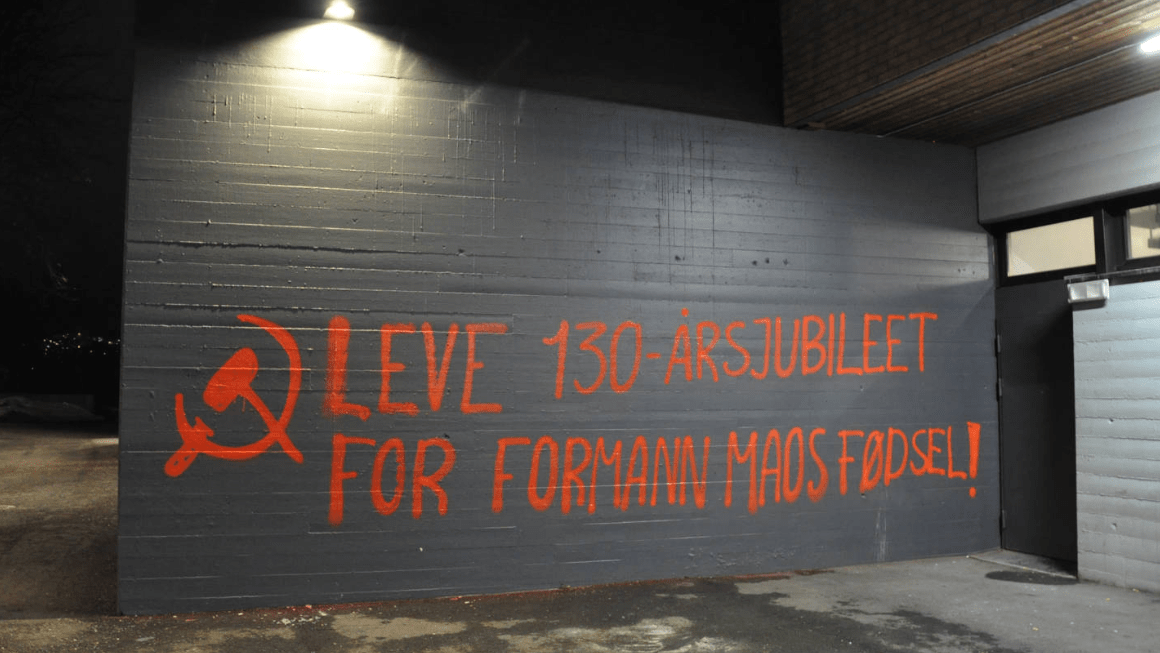
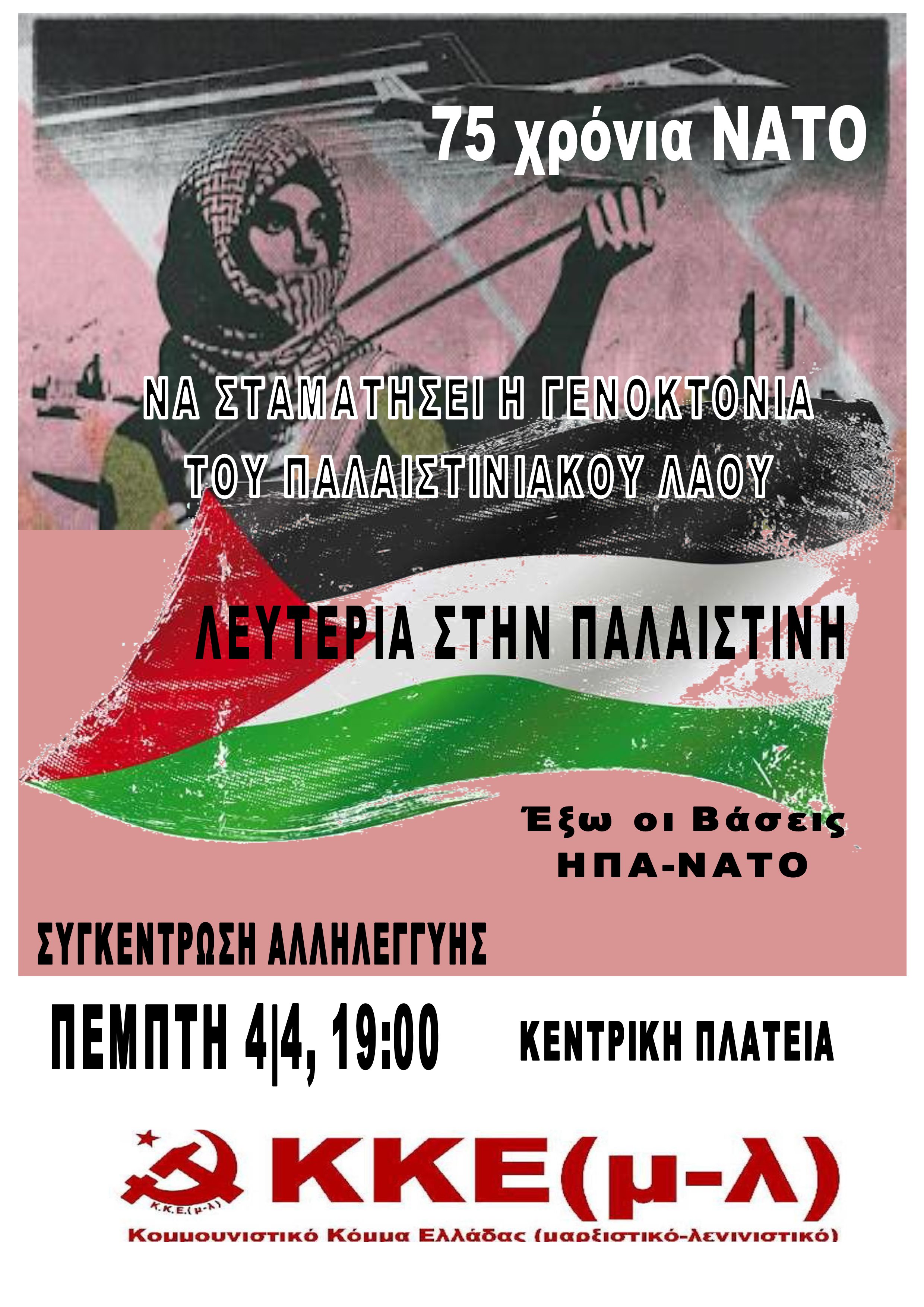.jpg)
